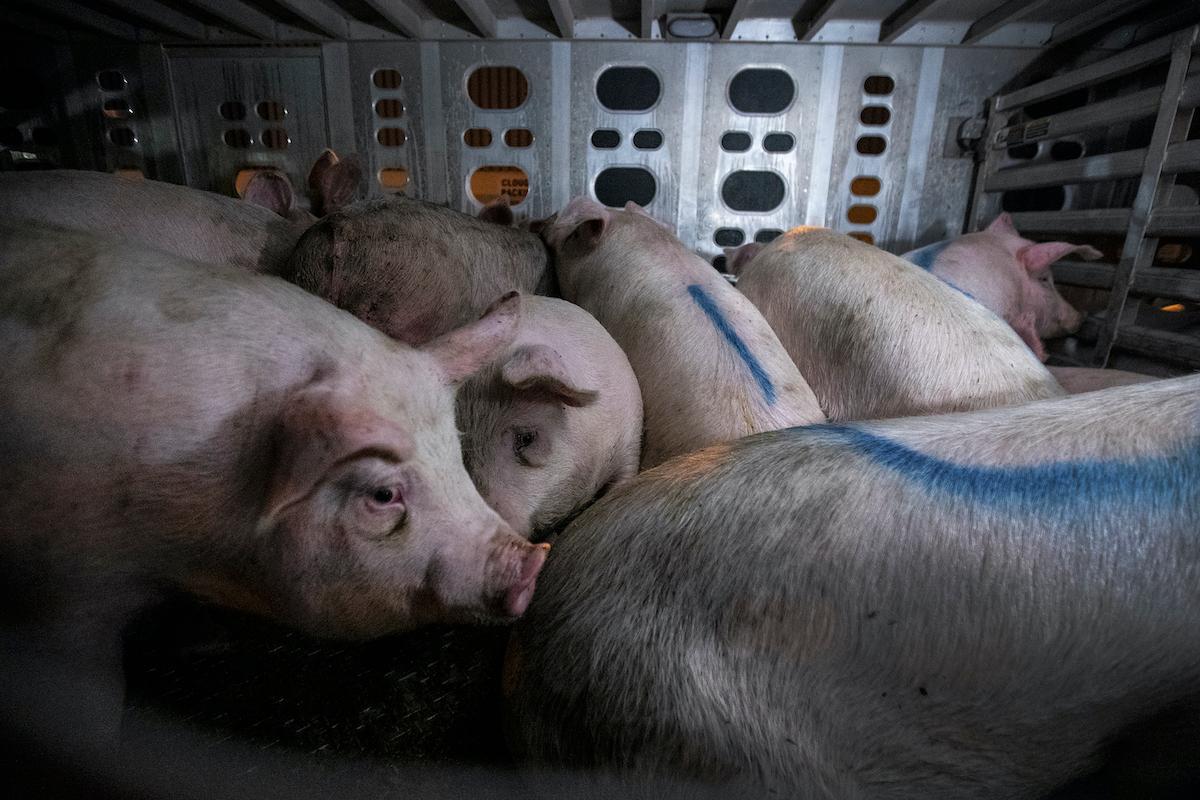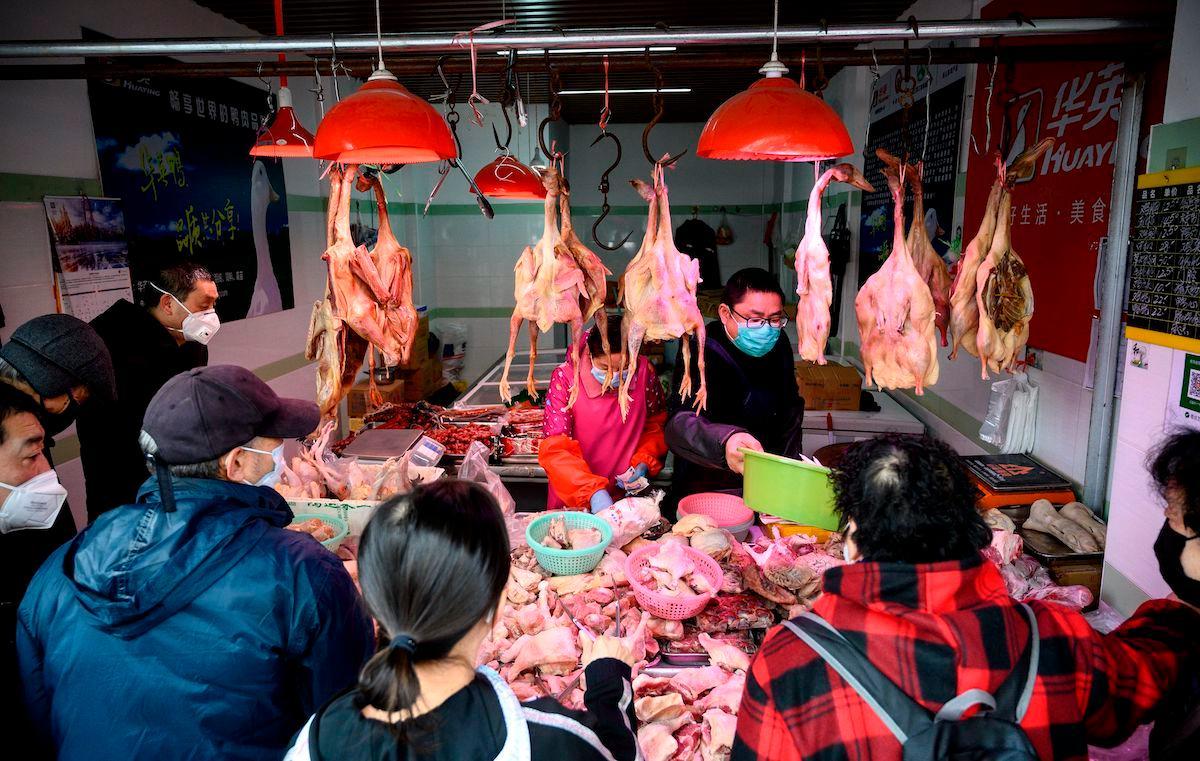
Largest U.S. pig slaughterhouse shuts down after coronavirus infects 300 employees
By Sophie HirshApril 15 2020, Updated 8:21 a.m. ET
Despite efforts to keep meat flowing into supermarkets, various U.S. slaughterhouses have temporarily shut down over the past week. According to the AP, meat producers are being forced to close as employees, who work in tight quarters, are contracting the coronavirus.
Notably, Smithfield Foods, the world’s largest pig producer, recently closed its massive Sioux Falls, S.D. “plant” (meaning a slaughterhouse and packaging facility) indefinitely. According to Smithfield, the slaughterhouse is one of the largest “pork processing facilities” in the U.S., representing up to 5 percent of the country’s pork production. The slaughterhouse employs 3,700 workers, 300 of whom have tested positive for COVID-19.
According to CNN, in a news briefing on Saturday, South Dakota Gov. Kristi Noem said that Smithfield employees represented more than half of South Dakota’s total active coronavirus cases at the time, making it clear that the virus was spreading throughout the slaughterhouse. Noem and Sioux Falls Mayor Paul TenHaken advised Smithfield to shut down for at least two weeks.

VERNON, CA. - FEBRUARY 20: Dozens of people gather for a twice-weekly vigil for pigs arriving for slaughter at the Farmer John processing facility. Protesters approach the truck, offering water and words of comfort to the pigs as the truck waits to enter the facility.
At a Tyson Foods slaughterhouse in Camilla, Ga., three employees recently passed away from COVID-19. One such employee, Annie Grant, 55, was told she had to come into work, despite having a fever for three days — shortly after, she returned home, was placed on a ventilator for more than a week, and then passed away last Thursday, as reported to The New York Times.
“My mom said the guy at the plant said they had to work to feed America. But my mom was sick,” Grant’s son told the newspaper.
Smithfield’s Sioux Falls slaughterhouse is not the only one to close during the pandemic. According to Reuters, Tyson Foods temporarily closed its pig slaughterhouse in Columbus Junction, Iowa, JBS USA temporarily closed its cow slaughterhouse in Greeley, Colo., and National Beef Packing Co temporarily stopped slaughtering cows at its Tama, Iowa facility — to name a few.
Experts believe that the novel coronavirus started in a wet market in China. A wet market is an open-air marketplace where consumers choose live animals to be slaughtered on the spot. Viruses and bacteria can easily spread in wet markets because they put people in close contact with animals who may carry diseases, animal waste, animal blood, and more.

In slaughterhouses, maintaining the recommended 6 feet of social distance between coworkers is nearly impossible. Employees change in the same locker rooms, they stand side by side on the kill floor, and they perform physically demanding and emotionally stressful work, which can weaken immune systems.
Slaughterhouse employees are essentially in the same position as wet market employees and customers — probably to an even higher degree, since they spend all day surrounded by feces, urine, blood, bacteria, and more — so it makes sense that slaughterhouses are aiding in the spread of the coronavirus.
"While slaughterhouses are shuttering, grocery store sales of plant-based proteins have skyrocketed, and most major meat companies are already creating or investing in vegan meats," a People for the Ethical Treatment of Animals (PETA) spokesperson tells Green Matters in an email.
"As the public becomes more aware than ever that filthy slaughterhouses and live-animal markets are breeding grounds for disease, PETA is calling on Tyson, Smithfield, and other companies to get ahead of the curve by going entirely vegan now—and we'll even help cover the cost of retraining their employees."
Many health experts are asking the World Health Organization (WHO) to shut down wet markets to reduce the health risks. But with mass slaughterhouses presenting the same problems and spreading the virus, maybe shutting them down would make an even bigger difference.
The best way to prevent contracting or spreading coronavirus is with thorough hand washing and social distancing. If you feel you may be experiencing symptoms of coronavirus, which include persistent cough (usually dry), fever, shortness of breath, and fatigue, please call your doctor before going to get tested. For comprehensive resources and updates, visit the CDC website. If you are experiencing anxiety about the virus, seek out mental health support from your provider or visit NAMI.org.
